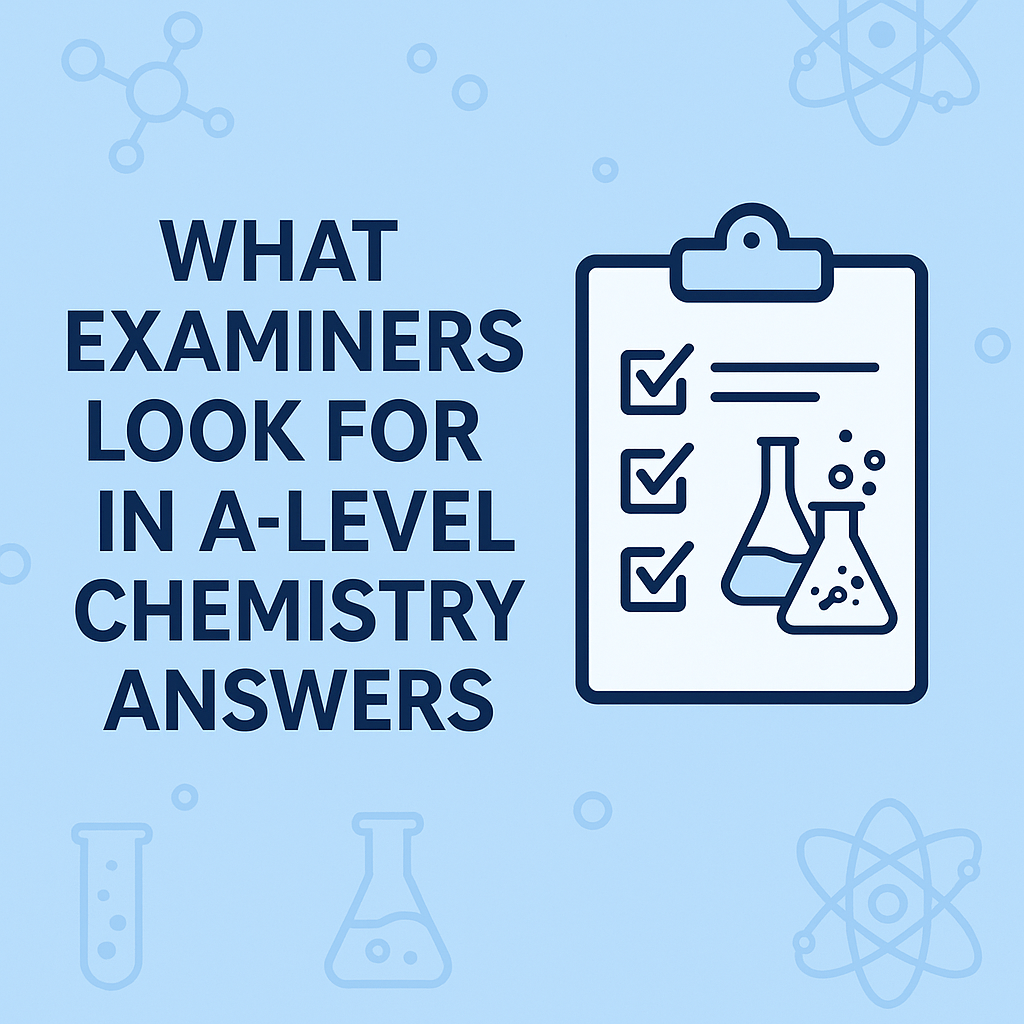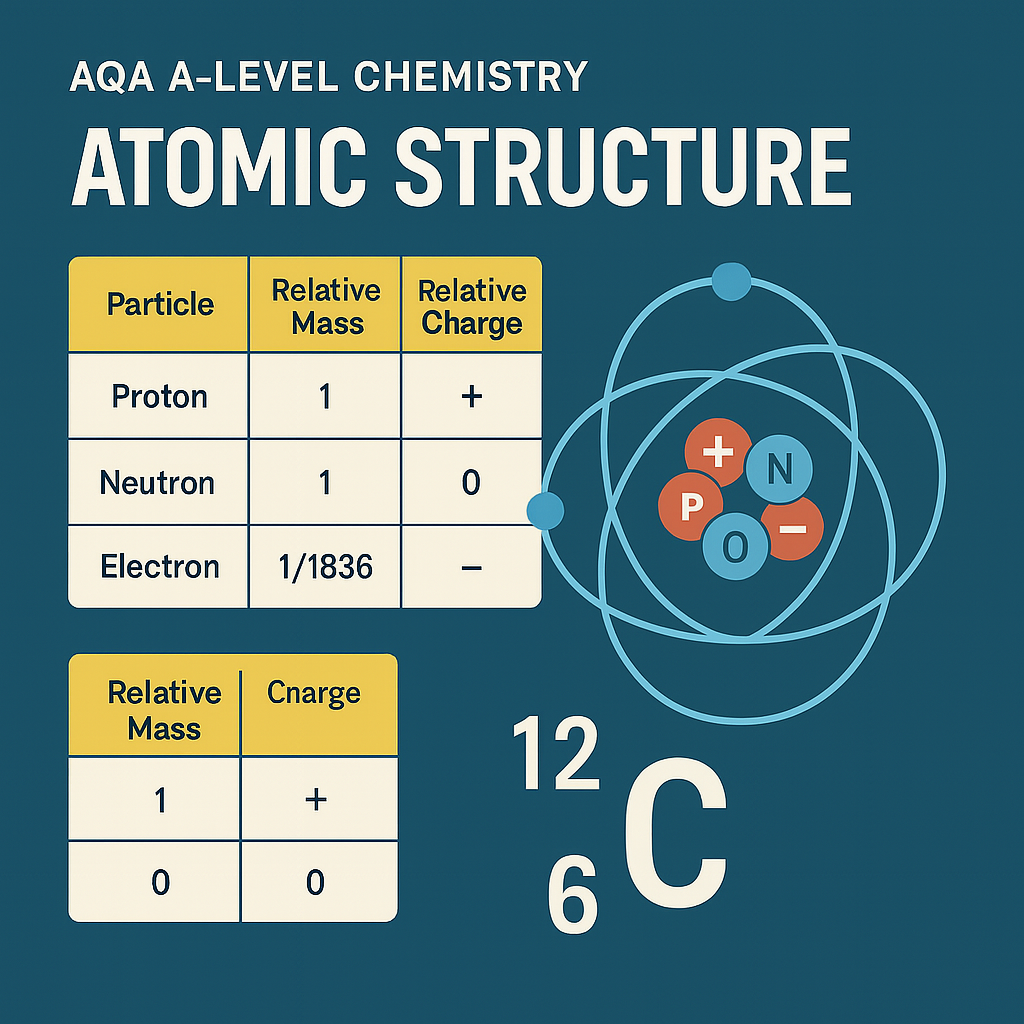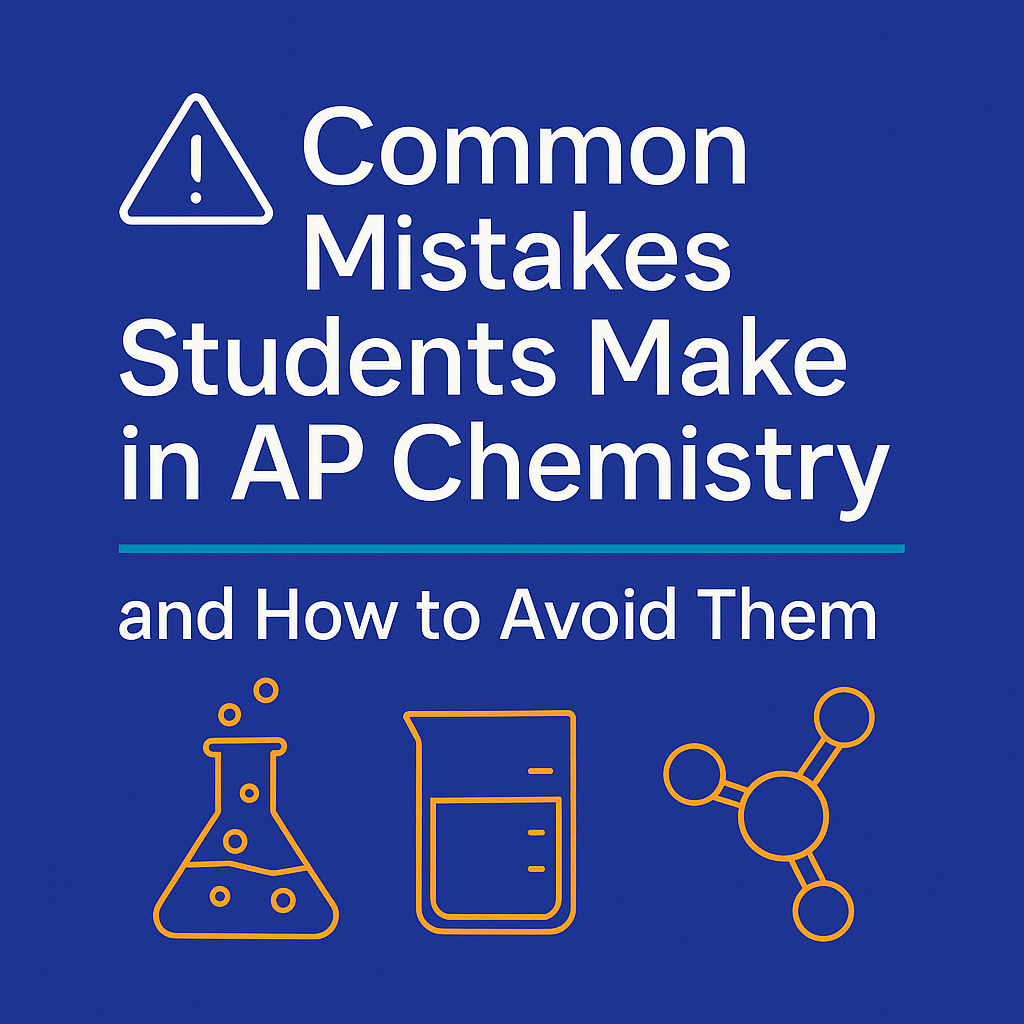What Examiners Look for in A-Level Chemistry Answers
Avoid waffle. Stick to the point. A beautifully written paragraph that doesn’t directly answer the question won’t earn you a single mark.
You’ve revised the content, memorised definitions, and practised your flashcards. But when it comes to the exam, it’s not just what you know — it’s how you write it.
In A-Level Chemistry, marks can be lost not because your understanding is wrong, but because your answer doesn’t meet the mark scheme requirements.
Here’s what A-Level Chemistry examiners are really looking for — and how you can give them exactly that.
1. Precise Use of Scientific Language
Chemistry is a language of its own. Examiners want to see that you can express ideas clearly using correct terminology. For example:
❌ “The molecule is more stable.”
✅ “The delocalisation of electrons lowers the enthalpy and increases thermodynamic stability.”
Even if your point is valid, vague or casual language won’t earn marks. Stick closely to the terminology used in your specification and past mark schemes.
2. Clear Structure That Matches the Question Command Word
Every question gives you a clue — in the command word:
State: Give a short, factual answer.
Explain: Say why something happens, with cause-and-effect.
Describe: Outline what you see or what is happening.
Calculate: Show every step and include units.
Evaluate: Weigh up pros and cons with a conclusion.
Examiners are trained to look for structure that matches the command word. A perfectly correct explanation given in a “state” format could still miss the mark.
3. Logical Working for Calculations
Examiners award marks for method as well as the final answer. To earn all the marks:
Set out each calculation step clearly.
Always write the formula first, then substitute values.
Include units at each stage, not just in the final answer.
Round only at the end unless instructed otherwise.
If your final answer is wrong but your method is sound, you can still get method marks.
4. Application of Knowledge (Not Just Recalling It)
A-Level exams often present unfamiliar scenarios and expect you to apply your understanding, not just repeat facts.
For example, you might be asked to explain a result from an experiment you’ve never seen before — but the concepts behind it come from what you've learned.
Examiners want to see that you can:
Interpret unfamiliar data
Link it back to core concepts
Use your knowledge flexibly to solve problems
5. Answers That Match the Mark Scheme Style
Reading past mark schemes is one of the best ways to learn what examiners are looking for. You’ll start to notice patterns:
Key phrases that appear repeatedly
The exact number of points needed for each question
How many marks are given for explanation vs factual recall
Train yourself to think like an examiner. When you review your own practice answers, ask:
👉 “Would this earn the mark if I were the examiner?”
6. Clarity Over Complexity
Many students think they have to sound “impressive” in A-Level answers. In reality, examiners want:
Clarity
Precision
Relevance
Avoid waffle. Stick to the point. A beautifully written paragraph that doesn’t directly answer the question won’t earn you a single mark.
7. Use of Key Words and Concepts from the Specification
Each exam board — AQA, OCR, Edexcel — has its own preferred wording and key concepts. These are often listed directly in the specification.
Examples include:
“Dynamic equilibrium”
“Activation energy”
“Nucleophilic substitution”
Examiners are instructed to award marks when specific terms are used correctly — so make sure you’re familiar with your board’s vocabulary.
Final Thought
To get top marks in A-Level Chemistry, you need to think beyond knowing the content. Focus on how examiners read your answers. Write with their expectations in mind, use the correct terminology, and practise structuring answers exactly the way the mark scheme wants.
If you're unsure what the examiners are actually looking for in your writing, a tutor can help you practise and refine your technique.
Book a consultation and learn how to turn your knowledge into marks.





Understand AQA A-Level Chemistry Section 3.1.1.2 on mass number and isotopes. Learn key definitions, isotope notation, calculations, and how this topic builds your scientific and exam skills.